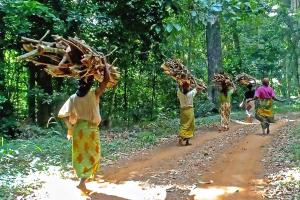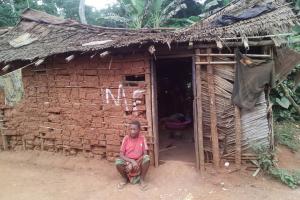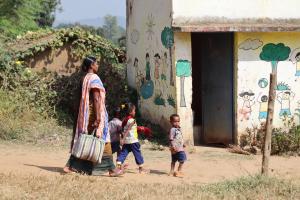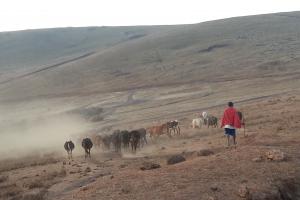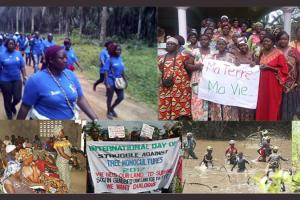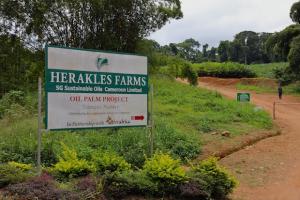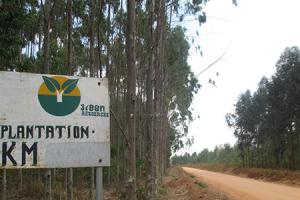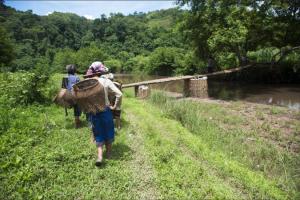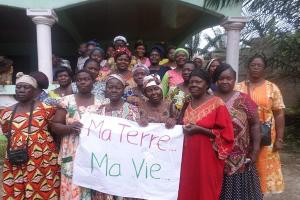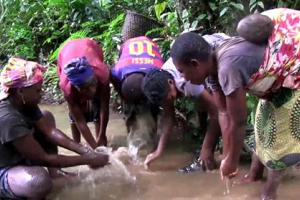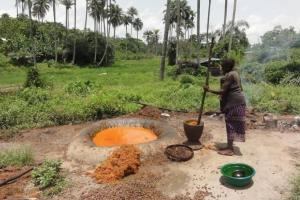Struggles for the Forests
When corporations destroy forests, or restrict or even prohibit access to forest peoples' territories, they place communities' ways of life and their very existence at risk. WRM supports forest peoples' struggles to defend their territories, and their right to decide how to live, and how to use the forests they depend on.
Patriarchal oppression is inseparable from the industrial plantation model, and it is at the base of how companies generate profits. Companies target women, including due to their fundamental role in community life.
Plantation companies often argue that local populations are destroying the forests, particularly where people depend on firewood and/or charcoal for their energy needs. Thus, they argue, industrial plantations can “sustainably” provide this wood. But this is simply not true.
Indigenous peoples in Cameroon are not only seeing their lands threatened due to strong pressure from corporate and state investors, but they also face a discriminatory justice system that blames and criminalizes them.
Before, conservation organizations were focused on raising money to create protected areas in forests supposedly threatened with destruction; today, they constitute a bona fide transnational “industry” that manages and controls areas that go far beyond forests.
For the past eighty years, the Maasai have been displaced and dispossessed of their land, livelihoods, and more in Northern Tanzania, all under the guise of “conservation.” This article traces the origins of this dispossession through to present day struggles, calling for international solidarity.
Despite the many profound damages that industries cause in the world's forests, they also cause something else to emerge: the strong and diverse resistance movements of affected communities defending their territories, livelihoods, cultures and even their existence. The struggle continues! (Available in Swahili).
An interview with the activist Nasako Besingi. He organized communities in their protests against US agribusiness Herakles Farm’s palm oil plantations. Due to this engagement, he has been the victim of Herakles Farm and government physical attacks, intimidation and criminalization. (Available in Swahili).
At first glance, the Nzivi village is a village as many others in the area. But a big difference is that it does not allow investors for large-scale activities, such as monoculture tree plantations. Green Resources is the main private plantation company active in Tanzania. (Available in Swahili).
In solidarity with the International Day of Peasant Struggle. A day to remember, emphasize and mobilize together against the persecution and violence that peasants suffer on a daily basis around the world.
From rapes, forced body searches and searches of private spaces, to the risk of losing their lives: this article calls on us not to be accomplices to the violence women living around tree plantations in Cameroon suffer.

